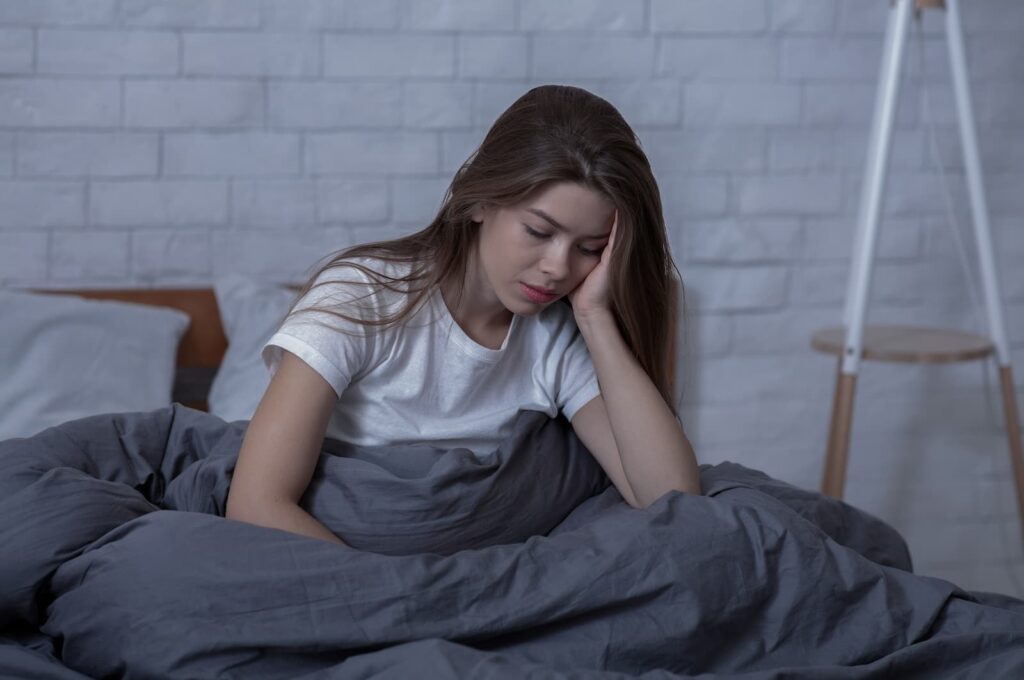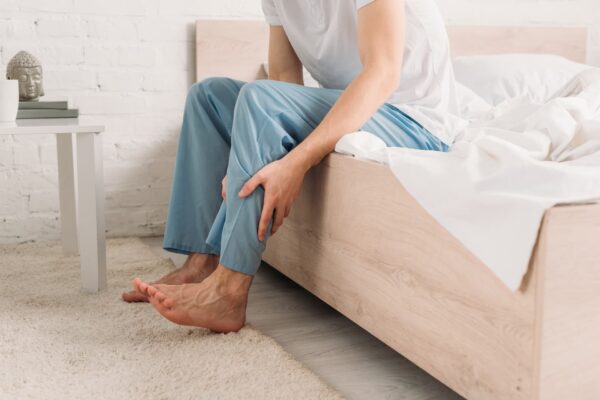Poor sleep is associated with several health problems, including hypertension, diabetes, obesity, depression, heart attack, and stroke. Sleep problems, including difficulties getting to sleep and staying asleep, are extremely common and, as such, it is important to identify methods to improve sleep.
The most important measures to take are those which improve sleep hygiene, which include establishing a bedtime routine, avoidance of screens immediately before bed, and moderating caffeine intake, among others.
Medications may also play a role in the management of some individuals with insomnia or other sleep disorders.
Several cannabinoids – chemical compounds found within the cannabis plant – have demonstrated effects on the body’s internal system which regulates sleepiness and wakefulness. In recent years, non-cannabinol (CBN) and cannabidiol (CBD) have become of particular interest to researchers. A recent study aimed to assess the safety and effects of CBN, both alone and in combination with CBD, on sleep quality.
How was the study designed?
Researchers designed a double-blind, randomised controlled study to compare the safety and efficacy of 20mg CBN, in insolation and in combination with varying concentrations of CBD, with a placebo. The study recruited participants between the ages of 18 and 55 who self-rated past week sleep quality as “very poor” or “poor”. Individuals with non-clinical sleep difficulties were selected so findings would have immediate and practical relevance to consumers of commercially available cannabinoids.
The study took place between May 2022 to November 2022 with participants randomised to treatment over a 10-day period, ensuring similar numbers of participants in each arm. Placebo or cannabinoids were delivered orally via gummies containing the required dose of CBN and CBD.
Participants completed a 3-day baseline, during which they completed the daily Consensus Sleep Diary – Core Version within approximately 1 hour of awakening, as well as Visual Analog Scale–Fatigue 90 min before bedtime each day, and the PROMIS Sleep Disturbance–Short Form 4a at the end of the 3-day period. The same schedule was maintained during the 7-day administration period, with sleep diaries completed every morning within 1 hour of awakening, VAS-F completed every night 90 min before bedtime, and the PROMIS Sleep Disturbance scale completed at the end of the administration period.
The primary outcome was sleep quality rating during the 7-day administration period. Secondary outcomes included sleep onset latency, number of awakenings, wake after sleep onset (WASO), sleep disturbances on the PROMIS, and daytime fatigue.
What were the results of the study?
Overall, 301 participants complied with the study protocol procedures by completing assessments during both baseline and intervention phases of the study.
For the primary outcome of sleep quality, none of the treatment groups demonstrated improvements relative to placebo; however, the researchers note that the 95% confidence interval observed for the 20 mg CBN group is compatible with a clinically meaningful change in sleep quality.
Furthermore, 20 mg CBN was associated with a reduction in the number of awakenings per night and the extent of overall sleep disturbance. In contrast, none of the preparations that included CBD led to improvements in any sleep outcome. Furthermore, none of the formulations, including the 20 mg CBN, led to an increase in daytime fatigue. These results indicate that CBD did not improve the efficacy of CBN in sleep but conversely may have counteracted its effects.
Safety
The incidence of nonserious adverse events (AEs) was comparable across the study groups. The most frequently reported AEs in participants receiving active treatment were somnolence (6.8%), headache (4.8%), sleep disorder (4.8%), and dysgeusia (3.4%). Only the incidence of somnolence appeared to be more common in treatment groups relative to placebo. However, of the participants who experienced feeling “groggy” or sleepy on waking (n = 20), 17 reported that this did not persist throughout the day.
Conclusions
The authors conclude that the present study provides evidence on the effects of 20 mg CBN on nighttime awakenings and overall sleep disturbance. However, they also acknowledge some limitations to their study; these include the testing of only one dose of CBN; failure to recruit the target sample of 75 participants per treatment arm; and the use of only subjective assessments of sleep.
Nonetheless, the authors conclude that the findings of this study “advances our understanding of the impact of CBN on sleep”. Whilst there is still insufficient data to recommend CBN as a therapy for insomnia based on this trial, this does help advance our understanding of its effects and notably, how CBD may counteract these.



